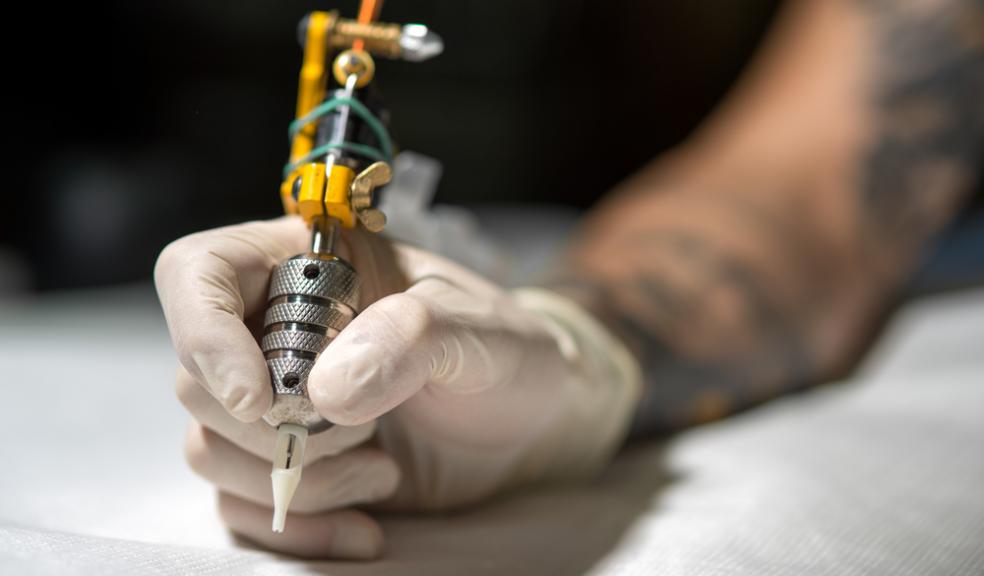
Scratchers’ targeted in raid
Plymouth’s campaign to encourage people to think before they ink has got off to a flying start - equipment has already been seized from two properties.
Yesterday (Tuesday) the Council’s Public Protection team accompanied by police officers seized equipment from a house in Efford. The haul included needles, ink, tattoo machinery, tattoo stencils from someone who was doing tattoos in their own home.
This is the second seizure of equipment in less than a fortnight from ‘scratchers’ believed to be operating in the city and targeted in the team’s Operation Itchy. A scratcher is someone who has bought tattoo kit over the internet and tattooing without proper training or awareness of hygiene.
The seizures are part of a two-pronged approach – the Council has just launched a competency scheme for tattoo businesses to make sure tattoos and skin piercing takes place in hygienic and well-run premises.
The project has been set up in an attempt to reduce infection and injury through better awareness and training around infection control and it is hoped that the scheme will help the industry and the Council work together to stamp out unregistered tattooists and clamp down on ‘scratchers’.
Councillor Sue McDonald, cabinet member for Children, Young People and Public Health said: “We have a great businesses doing fantastic work here in this city, but we are also aware of a growing number of people who are trying out tattooing on their friends at home with no training and no idea about basic hygiene requirements.
“We have been made aware of people who have suffered serious infections and needed hospital treatment – given the popularity of tattoos and the number of competent and talented tattooists trading in the city, this should not happen.”
The law requires tattoo premises and tattoo business owners to be registered but the customer has no idea how good that business is. The Council is visiting all 30 premises in the city and encouraging them to carry out a self-audit to make sure they are up to speed with all the basic health requirements.
They will then carry out follow-up inspections, host training sessions with public health professionals for infection control and work to introduce better reporting arrangements for ill health and infections.
The Council’s audits are being carried out in accordance with the most detailed scientific study into hygienic tattoo practices. The study, which was completed by Public Health England, the Chartered institute of Environmental Health and the Tattoo and Piercing Industry Union, identifies the expected standards for practice, agreed knowledge and skills frameworks or arrangements for monitoring and reporting professional competence within the industry.
Because piercing and tattooing involves contact between blood and instruments, there is a risk of blood borne infections such as HIV and hepatitis as well as other skin infections that can lead to permanent disfigurement and blood poisoning.











